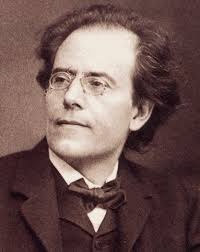Mahler’s Family Background:
Mahler was the second child born to his parents. His father, Bernhard, was a tavern proprietor and his mother, Marie, was the daughter of a soap maker. Shortly after Mahler’s birth, he and his parents moved to Iglau, Moravia, where his father opened a successful tavern and brewery. The income the family earned allowed Bernard to support Mahler’s musical ambitions.
Childhood:
Because Mahler lived close to the town square where frequent concerts were given by the military band, he developed a taste for music at a very early age. He learned various songs from Catholic school friends and received lessons from local musicians. It wasn’t long after his father’s purchase of a piano for their home that Mahler became proficient at playing it.
Teenage Years:
As a result of Mahler’s “not-so-good” grades in school, his father sent him to audition at the Vienna Conservatory. Mahler was accepted in 1875 under Julius Epstein with whom he studied piano. While in music school, Mahler quickly turned to composition as his primary study. In 1877, Mahler enrolled in Vienna University where he became interested in great literary works and philosophy.
Early Adult Years :
At the young age of 21, Mahler received a conduction job in the Landestheater in Liabach. He conducted over 50 pieces including his first opera Il Trovatore. In 1883, Mahler moved to Kassel, signed a contract and worked several years as ‘Royal Musical and Choral Director’ – it may have been a fancy title, but he still had to report to the resident Kapellmeister. From 1885-91, Mahler worked in Liepzig, Prague, and Budapest.
Mid Adult Years:
In March of 1891, Mahler became chief conductor at the Hamburg Stadttheater. While in Hamburg, Mahler finally finished his second symphony in 1895. Also, in the same year, Mahler’s younger brother shot himself. Since his parents had died several years before, Mahler became the head of the household. To protect his younger sisters, he moved them to Hamburg to live with him.
Late Adult Years:
Mahler moved to Vienna and became the Kapellmeister to the acclaimed Vienna Philharmonic. Several months later he was promoted to director. As the new director at the Hofoper Theater, his daring, provocative, and controversial performances attracted great numbers to the theater and many press reviews. In 1907 and 1910, Mahler conducted the New York Philharmonic and Symphony Orchestra. A year later, after returning to Vienna, Mahler died from bacterial endocarditis.
Leave a Reply
You must be logged in to post a comment.

No Responses